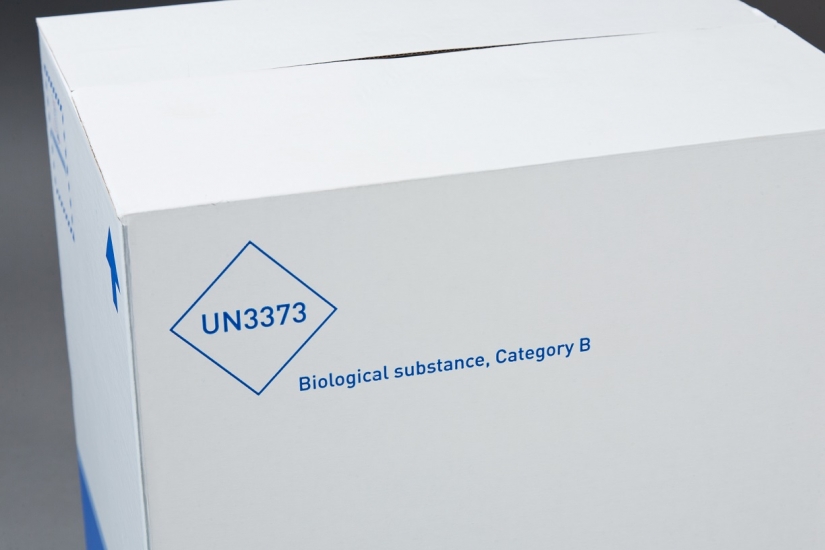Clinical trial transport: what do regulations say?
Samples must be transported in compliance with IATA regulations (for the air transport of hazardous goods), or the European agreement on international road transport of hazardous goods (ADR). These regulations cover air or road transport of infectious materials that can contain pathogens. They are based on UNO recommendations.
Category A infectious matter, assigned to N°UN2814 and UN2900 is matter that can cause permanent disability or a fatal illness in man or an animal. Category B infectious matter is that which is not in category A. Assigned to N°UN3373, its official transport description is "BIOLOGICAL MATERIAL, CATEGORY B".
UN3373 packaging according to regulations
UN3373 packaging is composed of three layers:
- A preliminary sealed packaging (recipient) which contains the matter.
- A secondary packaging, strong and sealed, that makes it possible to protect one or more primary recipients surrounded by sufficient absorbent material to absorb all the liquid in the event of a leak.
- An outer packaging used to protect its contents and guarantee the cold chain where necessary.
Each primary recipient must not exceed 1 litre for liquids, or 1 kg for solids. The maximum quantity of category B biological matter transported in a parcel is 4 litres or 4 kg. The parcel must be correctly marked, labelled and accompanied by the transport documents.
A pre-qualified insulated shipping packaging is essential for heat sensitive samples. Heat sensitive samples must be transported strictly compliant with the cold chain, as their effectiveness depends on this. Depending on their stability, they are transported at between +2 and +8°C (or even +2 and +4°C) or below -18°C.
Laboratories, depositories and CROs use heat insulated packaging. During home care, qualified heat insulated bags are used to transport the product. On the return, the samples (blood, skin, etc.) are transported in UN3373 heat insulated packaging, from the place the sample was taken (hospital or laboratory) to the analysis laboratories.
Sofrigam qualified UN3373 insulated shipping system
Sofrigam has developed a line of UN3373 temperature-controlled packaging for the safe transport of clinical trials.
The Clinibox® packaging line guarantees the safe, temperature controlled transport of clinical trials (clinical samples, diagnosis samples or category B biological materials). It both guarantees compliance with applicable regulations covering the transport of hazardous goods (IATA and ADR) and compliance with the cold chain. The cold chain packaging is tested and qualified by our partner, the Ater Métrologie laboratory - using the ISTA 7E profile for thermal performances, and a minimum height of 1.2 m for the fall test.
These UN3373 transport kits are composed of VIAL 650 pouches and a heat insulated box. The VIAL 650 pouch (secondary packaging) is certified 95 kPa by an IATA approved laboratory. It is divided into several separate compartments that contain a sufficient quantity of absorbent material and in which the tubes are placed directly. It thus complies with the tube separation requirement and the requirement for protection from leaks. As for the heat insulated box (external packaging), it is manufactured using rigid polyurethane panels and cooled using cooling gel packs.
The standard line includes 3 boxes:
- The Clinibox 06/40 to keep from 1 to 5 tubes at between +2 and +8°C for 36 hours,
- The Clinibox 05/40 to keep from 1 to 5 tubes at below -18°C for 24 hours,
- The Clinibox 21/60 to keep up to 25 tubes (5 pouches) at below -18°C for 72 hours.
The 05/40 and 21/60 references are also available with dry ice for a duration of up to 96H.
This UN3373 temperature-controlled packaging can be manufactured to measure depending on your logistics constraints.
